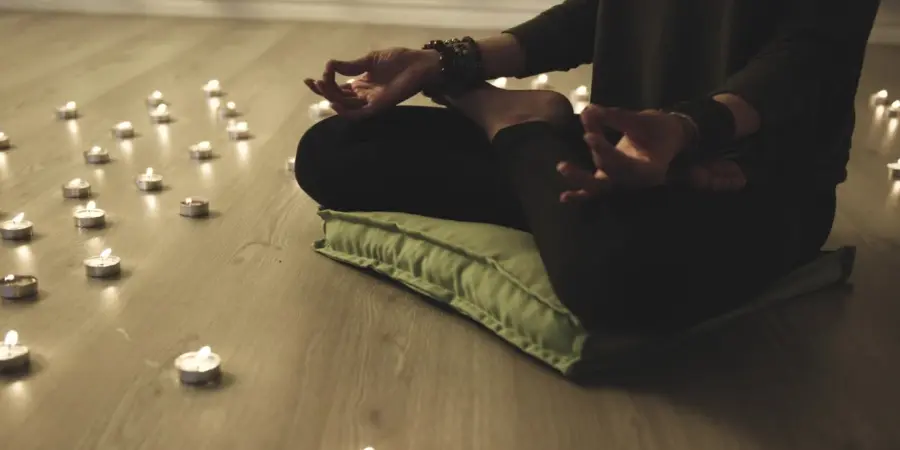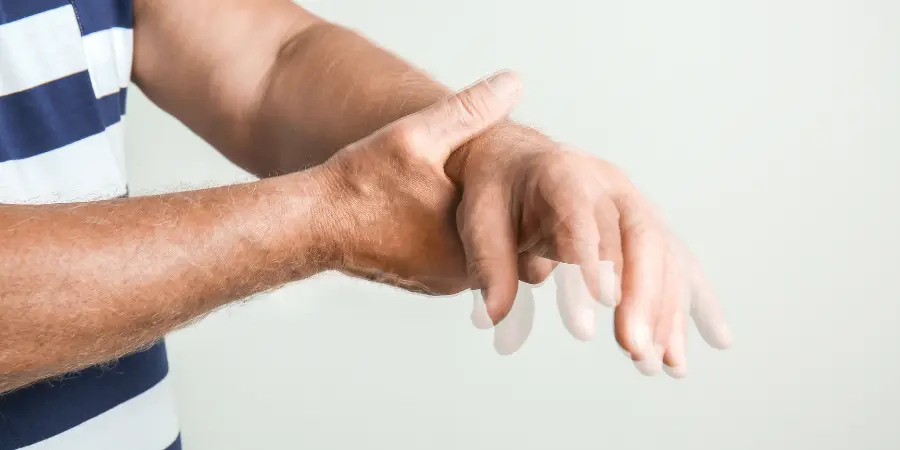Last Updated:
February 25th, 2025
Anxiety and Addiction | Symptoms and Treatment
Most of us will suffer from anxiety at some point in our lives, and it is perfectly normal to experience these emotions at one time or another. However, those with an anxiety disorder can experience it continuously, even if there is no reason for it. In the UK today, over eight million people are suffering from an anxiety disorder at any one time.
It is common for anxiety disorders to be accompanied by other mental health conditions, such as addiction, and when this happens, it is referred to as a co-occurring disorder. Individuals with pre-existing mental health problems often turn to addictive behaviours as a crutch to help cope with the complex emotions caused by the disorder. However, with both conditions perpetuating one another, addiction can make pre-existing mental illnesses worse. It is vital that, if you are struggling, you seek the help you need today and begin your journey toward health and healing. To learn more about anxiety and addiction, how they relate to one another and what to do if you or a loved one require support, read on for more details.
What is anxiety?
Going through anxiety is a normal part of life. Most individuals will undergo stress at one point or another, and this is usually down to external factors. Some everyday events that can induce stress include:
- Exams
- Doctor’s appointments
- Job interviews
- An argument with a friend
- Meeting a tight deadline
While stress can be pretty uncomfortable for the person experiencing it, these symptoms will usually subside once the matter has been settled. However, those with an anxiety disorder will frequently fight to keep their fears at bay, struggling to control their worry even after the stressful event has passed. In fact, those with anxiety disorders can even experience fear about everyday tasks that are not a cause for concern.
Much like those who suffer symptoms associated with addiction, anxiety comes in different forms. However, whatever the diagnosis, anxiety will feel different for each of us, and what triggers one individual may not necessarily trigger another. For example, where one person’s anxiety could be set off by fears that they have not turned off the oven or locked their doors; for another, it might arise from stress when going out in public and socialising with others.
Why do people with anxiety suffer from addiction?
Addiction is a chronic condition characterised by an uncontrollable urge to seek out habit-forming substances, like alcohol or drugs, or behaviours (such as the internet) to the extent that it is causing damage to the sufferers’ health and welfare.
For those with an anxiety disorder, addictive behaviours often emerge in attempts to take the edge off, or relieve the pressure caused by particular events or situations that are causing distress. In some instances, drugs can be used to self-medicate, temporarily relieving anxiety and putting users into a calmer, more relaxed headspace. Cannabis, for example, is a common substance abused by those with anxiety disorders.
Alternatively, individuals with the condition can also turn to addictive substances as a way to decrease the physical side effects associated with the illness. In fact, those with panic disorders often admit to drinking alcohol to decrease panic symptoms and relax their bodies. However, it is essential we remember that these substances can actually exacerbate anxiety in the long term, and it is widely known that alcohol and its associated withdrawal can actually cause panic attacks.
Therefore, while self-medication might offer a temporary reprieve in the short term, we at Primrose Lodge would like to remind you that this will only exacerbate the problem and should not be attempted. For a more effective solution, regular access to treatment and healing activities to calm the mind is considered the most beneficial method to combat anxiety disorders.
Common misconceptions about anxiety and addiction
Both anxiety and addiction are conditions that, for those who do not suffer from them, can be difficult to fully understand. Therefore, by reading the statements below, this can help to break down some common misconceptions surrounding anxiety and addiction, offering some insight into how these conditions can impact the lives of those suffering:
Anxiety is just stress…
For some, it is customary to say ‘I am anxious’ after a challenging day. However, there is a difference between experiencing heightened nerves in times of stress and suffering these emotions continuously and without explanation. For those with an anxiety disorder, the sufferer can become so anxious that their worries begin to interfere with all aspects of their daily life. They might struggle just to get through the day, experiencing symptoms such as panic attacks or stomach pains when the pressure builds, and they can no longer regulate their emotions.
In fact, some of those with anxiety disorders often turn to addictive behaviours as an escape from the unpleasant symptoms associated with their condition, and it can feel impossible to break these behaviours without the proper support. Therefore, referring to this disorder simply as ‘stress’ can minimise the realities of this illness and is unlikely to provide any encouragement for the person who is suffering.
Anxiety and addiction are purely mental, not physical…
As anxiety is a mental health disorder, many of us are not aware that it can manifest itself physically, relating to a survival instinct developed a great number of years ago. Our brains are equipped in much the same way as our animal ancestors, releasing hormones like adrenaline to kick us into gear when we are in danger. This reaction is known as the fight, flight, or freeze response.
For those suffering from an anxiety disorder, their brain can misread the risk, telling them that there is some form of perceived danger that is causing distress, but this threat often doesn’t exist. As a result, their brain can induce physical responses, such as:
- Raised heart rate
- Trembling or shaking
- Rapid breathing
- Muscle tension
- Illness
Much like an addiction, a condition that we might believe is purely mental can also come with a host of uncomfortable physical symptoms that we are unaware of.
Neither anxiety or addiction can be treated…
While becoming anxious from time to time is inevitable, and it is impossible to escape certain triggers that can aggravate anxiety, treatment can be a fantastic tool in helping control these symptoms and working towards a healthier life.
Much like addiction, regular treatment helps individuals to establish healthier thought patterns and behaviours, ensuring that when these anxious feelings overtake them, they do not feel suffocated or defeated by them. Therefore, despite this misconception, anxiety and addiction are both highly treatable conditions.
How Primrose Lodge can help
If you are struggling with anxiety whilst also battling addiction, we have several holistic therapies which have proven very beneficial in developing healthier coping strategies so that you no longer need to turn to addictive behaviours again. Some of our treatments include:
If you are struggling with an anxiety disorder, we understand just how difficult it can feel agreeing to pursue rehab treatment, especially as such a big decision could further heighten your worries and concerns. However, at Primrose Lodge, we have a compassionate staff team dedicated to delivering unwavering support throughout the course of your recovery journey.
With a number of treatment methodologies proven to be effective in treating co-occurring disorders, you can leave us with all the tools you need to step back into life, free from unhealthy behaviours associated with anxiety and addiction. If you would like to know more about the rehab process, please get in touch with a member of our team right away and let us assist you in getting the help that you deserve right away.




